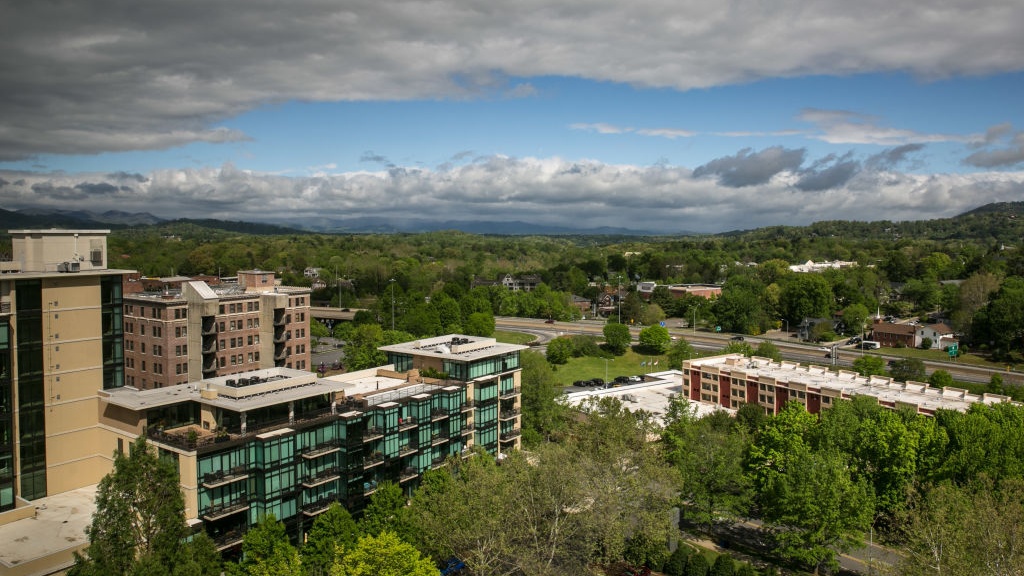A North Carolina city has approved reparations for its Black residents, acknowledging the city's role in slavery.
According to the Asheville Citizen Times, the Asheville City Council approved the reparations bill with a unanimous 7-0 vote.
The resolution does not call for direct payments to Black residents, but it does mandate direct investments into the areas affecting those residents negatively. The areas of focus will include minority homeownership, access to affordable housing, minority business ownership and career opportunities.
The plan also calls for growing equity and generational wealth, addressing inadequacy in health care, education, employment and pay and improving neighborhood safety and fairness within the criminal justice system.
Councilman Keith Young, one of two Black members on the council, was the leading proponent for the measure.
"Hundreds of years of Black blood spilled that basically fills the cup we drink from today," Young said. "It is simply not enough to remove statutes. Black people in this country are dealing with issues that are systemic in nature."
The city is also planning to create a Community Reparations Commission, which will include community groups and other local governments.
Sheneika Smith, a Black councilwoman, said the city council has received emails from people questioning why they should "pay" for slavery's long-lasting effects on the Black community.
"[Slavery] is this institution that serves as the starting point for the building of the strong economic floor for white America, while attempting to keep Blacks subordinate forever to its progress," Smith said.
Rob Thomas, a member of the Racial Justice Coalition, which has been leading the call for reparations, is excited about the progress that could come out of the resolution.
"This is a really, really good gesture as far as the foundation of what we can build," Thomas said. "The potential of what can come out of this document is amazing."
Some residents opposed the resolution, denouncing white privilege and saying the Black Lives Matter movement is Marxist.
"My white privilege is I grew up on a farm, we milked cows, we bailed hay. That was my white privilege," one critic said.
Other white residents like David Greenson supported the plan. Greenson urged white people to hold themselves accountable for the history of racism, even if they weren't directly involved in the act. He referenced the beating of an unarmed Black pedestrian by an Asheville police officer in 2017.
"I am responsible for the beating of Johnnie Rush in August of 2017," he said. "I may not have hit him or tased him or choked him, but I paid the man who did."
According to Mountain Xpress, local historian Terrell T. Garren published a report in 2009 on the history of slavery in the area of Asheville. Garren's study concluded that Buncombe County, where Asheville is located, had 1,907 slaves and 283 slave owners. In other North Carolina regions, Henderson County had 1,371 slaves and 207 slave owners, while Madison County had 213 slaves and 46 slave owners.
The call for reparations has been getting more attention around the country since the killing of George Floyd, USA Today reports. California recently formed a task force that will study and develop proposals for reparations.
The Congressional Black Caucus also met this month and discussed H.R. 40, or the Commission to Study and Develop Reparation Proposals for African-Americans Act.
Rep. Sheila Jackson Lee, a Democrat from Texas, sponsored the latest iteration of the bill more than a year ago. The bill was first introduced more than 20 years ago by Rep. John Conyers, who was unable to get the resolution passed despite trying multiple times.
"There is no better time for H.R. 40 to be part of the national dialogue and part of the national legislative response," Jackson Lee said.
According to USA Today, the "40" refers to Union Army Gen. William Sherman's promise of 40 acres of land to former slaves in 1865 that was never fulfilled. Although it isn't exactly a reparations plan, H.R. 40 is a bill that would determine what the federal government owes the descendants of slaves and how to pay that debt.
In a 2014 article for The Atlantic titled "The Case for Reparations," renowned author Ta-Nehisi Coates said reparation are "more than a handout, a payoff, hush money, or a reluctant bribe."
"What I’m talking about is a national reckoning that would lead to spiritual renewal," he wrote. "Reparations would mean the end of scarfing hot dogs on the Fourth of July while denying the facts of our heritage. Reparations would mean the end of yelling 'patriotism' while waving a Confederate flag. Reparations would mean a revolution of the American consciousness, a reconciling of our self-image as the great democratizer with the facts of our history."
